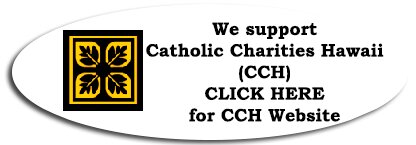Best Sanctions & Export Controls Lawyers in Hawaii
Share your needs with us, get contacted by law firms.
Free. Takes 2 min.
Or refine your search by selecting a city:
List of the best lawyers in Hawaii, United States
About Sanctions & Export Controls Law in Hawaii, United States
Sanctions and export controls law is a specialized area focusing on the regulation of international trade and the restriction of specific transactions involving people, companies, or items subject to United States government controls. These laws are designed to prevent the proliferation of weapons, support national security, promote foreign policy interests, and control goods, technology, and services that could threaten these objectives. In Hawaii, a key gateway for international trade and military activities, these laws are particularly relevant given the state’s geographic location and economic ties with countries across the Pacific Rim. Hawaii-based individuals and businesses must ensure strict compliance with federal regulations or risk significant penalties and legal consequences.
Why You May Need a Lawyer
Legal guidance in sanctions and export controls can be essential in a variety of situations. Common circumstances requiring legal support include:
- Exporting goods, technology, or services to foreign entities or countries subject to U.S. sanction programs.
- Engaging in business transactions that may inadvertently involve entities or individuals blacklisted by the U.S. government.
- Operating as a freight forwarder, customs broker, or logistics provider handling international shipments through Hawaii’s ports and airports.
- Responding to government inquiries or investigations regarding compliance with export control laws.
- Establishing compliance programs for businesses operating internationally, especially those in high-risk sectors such as defense, technology, and chemicals.
- Dealing with asset freezes, fines, or restrictions resulting from alleged breaches of sanctions.
- Navigating complex restriction lists such as those enforced by the Office of Foreign Assets Control (OFAC) and the Bureau of Industry and Security (BIS).
Having a lawyer with experience in these areas can help prevent costly mistakes, ensure compliance, and protect your interests if complications arise.
Local Laws Overview
Most sanctions and export controls laws in Hawaii are based on federal statutes, regulations, and executive orders enforced by agencies such as OFAC, BIS, and the U.S. Department of State. Key aspects relevant to Hawaii include:
- Strict adherence to the International Traffic in Arms Regulations (ITAR) and the Export Administration Regulations (EAR), especially for businesses exporting dual-use goods or defense articles.
- Compliance with OFAC’s economic and trade sanctions targeting specific countries, organizations, and persons, which influence transactions involving Hawaii’s foreign trade partners.
- Customs regulations at Honolulu Harbor and Daniel K. Inouye International Airport, which serve as critical junctures for international goods and military shipments.
- Coordination with U.S. military installations and federal agencies prevalent in Hawaii for activities involving sensitive technologies and materials.
- Potential interplay with state-level licensing and public safety rules concerning hazardous materials and technology transfers.
Although Hawaii does not have unique state sanctions or export controls regimes independent from federal law, understanding how federal rules are practically applied in the state’s vibrant port and international business environment is crucial for compliance.
Frequently Asked Questions
What are export controls and how do they affect businesses in Hawaii?
Export controls are federal laws that restrict the movement of certain goods, software, and technology outside the United States to protect national security and promote foreign policy. Businesses in Hawaii that ship items internationally must ensure they are not exporting restricted items or doing business with sanctioned countries or individuals.
Who enforces sanctions and export controls in Hawaii?
Federal agencies such as the Department of Commerce’s Bureau of Industry and Security (BIS), the Department of State’s Directorate of Defense Trade Controls (DDTC), and the Department of Treasury’s Office of Foreign Assets Control (OFAC) are the main regulators. U.S. Customs and Border Protection (CBP) also plays a significant role in enforcement at ports of entry in Hawaii.
Are there any local Hawaii sanctions laws separate from federal regulations?
No, sanctions and export controls in Hawaii are governed almost entirely by federal law. Businesses and individuals must comply with national regulations, and violations can be prosecuted in federal court.
How do I know if my goods or technology are subject to export controls?
You should review the Commerce Control List (CCL) and the U.S. Munitions List (USML) to determine if your items are controlled. A legal professional can assist with product classification and licensing requirements.
What is the penalty for violating sanctions or export controls?
Penalties can include civil and criminal fines, loss of export privileges, and imprisonment. Fines can be significant, sometimes reaching tens of thousands of dollars per violation, with criminal penalties resulting in millions in fines and jail time.
Can I do business with someone in a sanctioned country if my products are not sensitive?
Not necessarily. Sanctions can prohibit all transactions, even involving non-sensitive goods and services. You should always check OFAC regulations and license requirements before proceeding.
Do U.S. export controls apply when shipping between Hawaii and foreign countries?
Yes. Goods leaving Hawaii for any foreign destination are subject to U.S. export controls, regardless of the item’s value or sensitivity.
What steps can I take to ensure compliance?
Conduct due diligence on foreign customers, use restricted party screening lists, secure appropriate export licenses, and implement an internal compliance program tailored to your operations.
If I receive a government inquiry regarding sanctions, what should I do?
Contact a lawyer experienced in sanctions and export controls immediately. Do not respond or submit any documents without legal guidance.
Are there exceptions or licenses available if my transaction is restricted?
Yes. Some prohibited activities may be allowed under specific licenses or exceptions. A qualified attorney can help you determine eligibility and assist with the application process.
Additional Resources
The following resources can provide valuable information and assistance regarding sanctions and export controls in Hawaii:
- U.S. Department of the Treasury - Office of Foreign Assets Control (OFAC)
- U.S. Department of Commerce - Bureau of Industry and Security (BIS)
- U.S. Department of State - Directorate of Defense Trade Controls (DDTC)
- U.S. Customs and Border Protection (CBP), Honolulu Field Office
- Hawaii Pacific Export Council
- Small Business Development Center Hawaii (Export Assistance)
- Hawaii State Bar Association - International Law Section
- Local chambers of commerce with international trade initiatives
These agencies and organizations offer up-to-date guidance, training, and compliance materials to help navigate complex export and sanctions rules.
Next Steps
If you believe you may be affected by sanctions or export controls or require legal advice, consider the following actions:
- Assess your potential exposure based on current or planned international transactions.
- Gather all relevant documents, such as export records, contracts, and communications.
- Contact a qualified attorney in Hawaii experienced in sanctions and export controls law.
- Discuss your situation in detail to obtain a risk assessment and develop a compliance plan.
- Stay informed about updates to federal regulations and seek ongoing legal support to address emerging issues.
Proactive legal consultation can help avoid costly mistakes and ensure your business or activities are compliant with the complex landscape of U.S. sanctions and export controls.
Lawzana helps you find the best lawyers and law firms in Hawaii through a curated and pre-screened list of qualified legal professionals. Our platform offers rankings and detailed profiles of attorneys and law firms, allowing you to compare based on practice areas, including Sanctions & Export Controls, experience, and client feedback.
Each profile includes a description of the firm's areas of practice, client reviews, team members and partners, year of establishment, spoken languages, office locations, contact information, social media presence, and any published articles or resources. Most firms on our platform speak English and are experienced in both local and international legal matters.
Get a quote from top-rated law firms in Hawaii, United States — quickly, securely, and without unnecessary hassle.
Disclaimer:
The information provided on this page is for general informational purposes only and does not constitute legal advice. While we strive to ensure the accuracy and relevance of the content, legal information may change over time, and interpretations of the law can vary. You should always consult with a qualified legal professional for advice specific to your situation.
We disclaim all liability for actions taken or not taken based on the content of this page. If you believe any information is incorrect or outdated, please contact us, and we will review and update it where appropriate.
Browse sanctions & export controls law firms by city in Hawaii
Refine your search by selecting a city.











